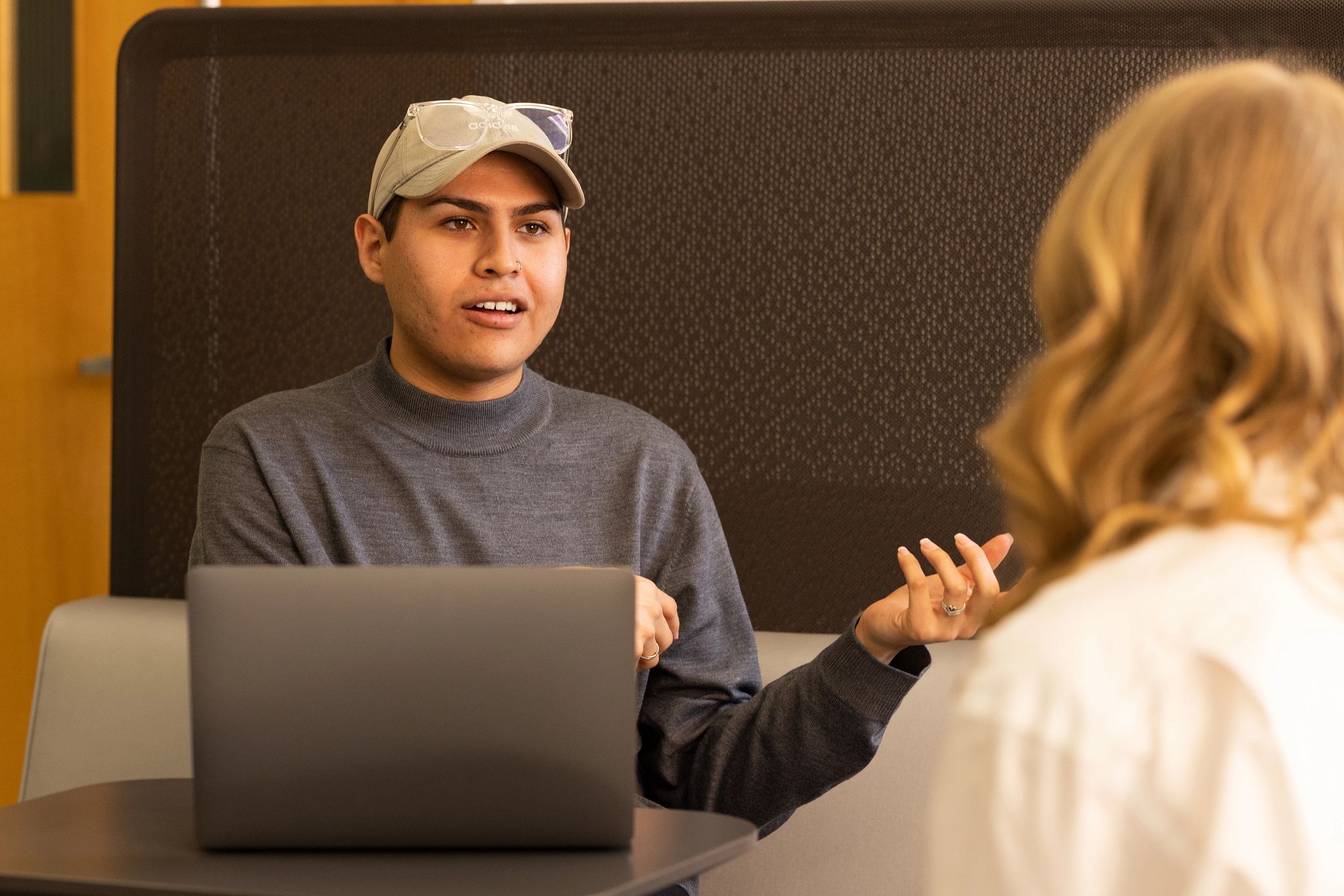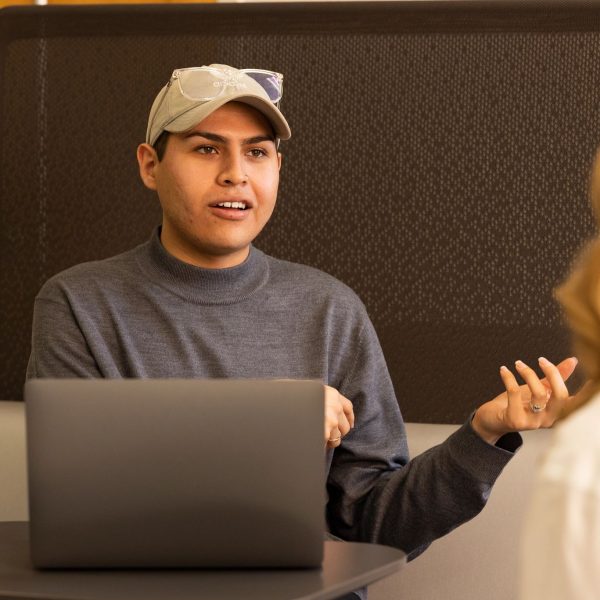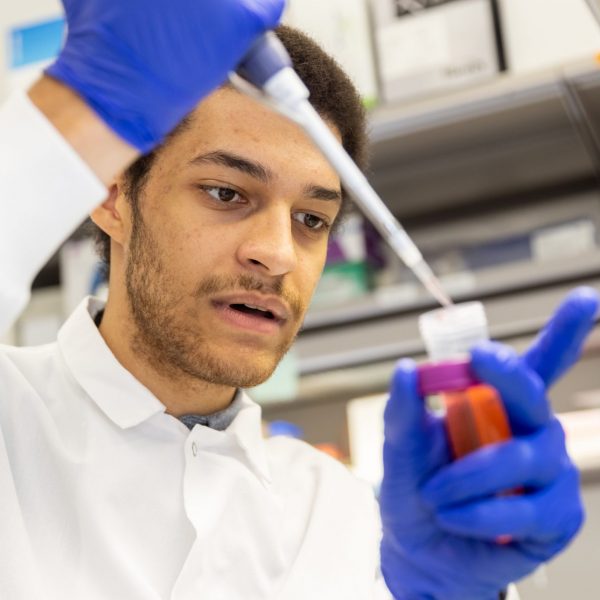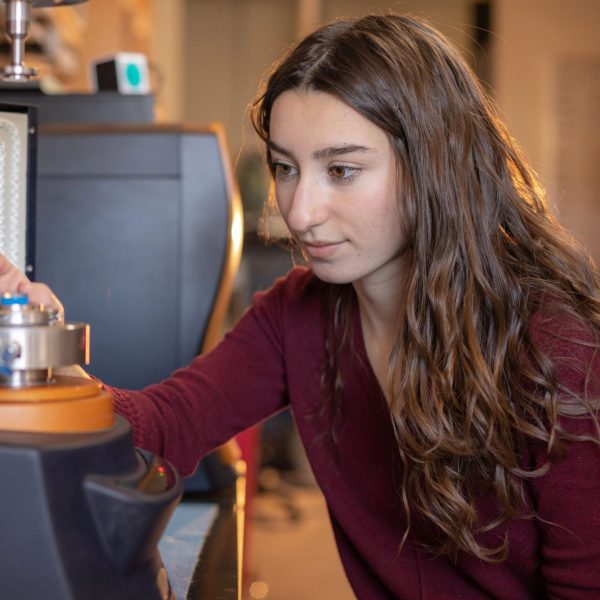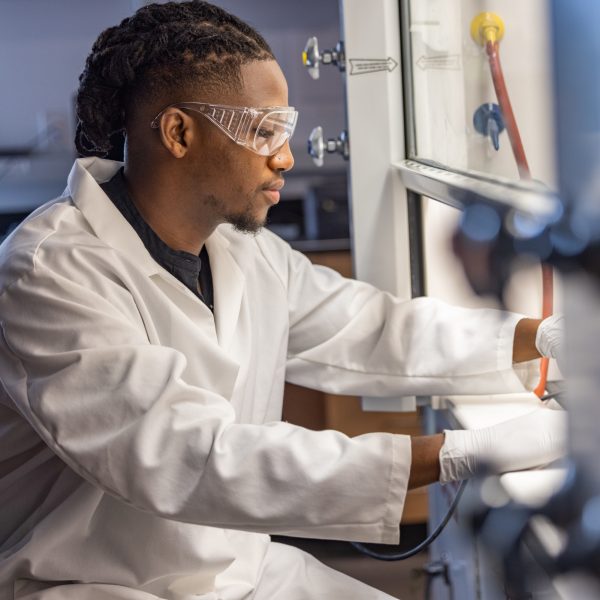Andres Huerta is all about family.
This first-generation student makes the six-hour drive home for holidays and calls his mother daily. His mom, originally from a low-income family in Durango, Mexico, dropped out of school to help her parents. As Huerta was growing up, she and other family members stressed the importance of education as a route to success and financial stability.
That, Huerta says, is what motivates him to succeed at NAU. Huerta is set to graduate with a bachelor’s degree in Biomedical Science in May 2023.
His goal is to work in the medical field, and while keeping his options open, his top interest is becoming a physician’s assistant. “My motivation stemmed from witnessing several family members suffer from diabetes, cancer, or Alzheimer’s,” Huerta says. “Witnessing this sparked a light in me about pursuing a career where I can work on preventative measures as well as treatment plans so patients can focus on healing.” Right now, he is making the most of the opportunities he has discovered at NAU.
Hands-on research experience
This spring, Huerta is participating in the Undergraduate Symposium. Funded by the Interns-to-Scholars program, he will be presenting work from his time in the Cardiovascular Regulation Laboratory working under Department of Biology Associate Professor Sara Jarvis. Huerta’s project is titled “Influence of Body Composition on Insulin Sensitivity in the Hispanic Population.” He also presented this research at the 2022 Arizona Physiological Society Annual Meeting.
Insulin is a hormone created in the pancreas that regulates blood sugar levels. Insulin sensitivity describes how well the body reacts to insulin levels. A low insulin sensitivity, also called insulin resistance, is associated with several health conditions—including type 2 diabetes.
As part of his research, Huerta collected different body measurements from volunteers, including hip-to-thigh ratio and waist and thigh circumference. He then collected blood samples before and after the volunteers drank glucose (sugar) to quantify glucose tolerance. “You begin to notice the trend that individuals with larger waist circumferences are more susceptible to becoming insulin resistant or insulin sensitive, which just means that they aren’t processing their sugar as well as they should be,” Huerta says.
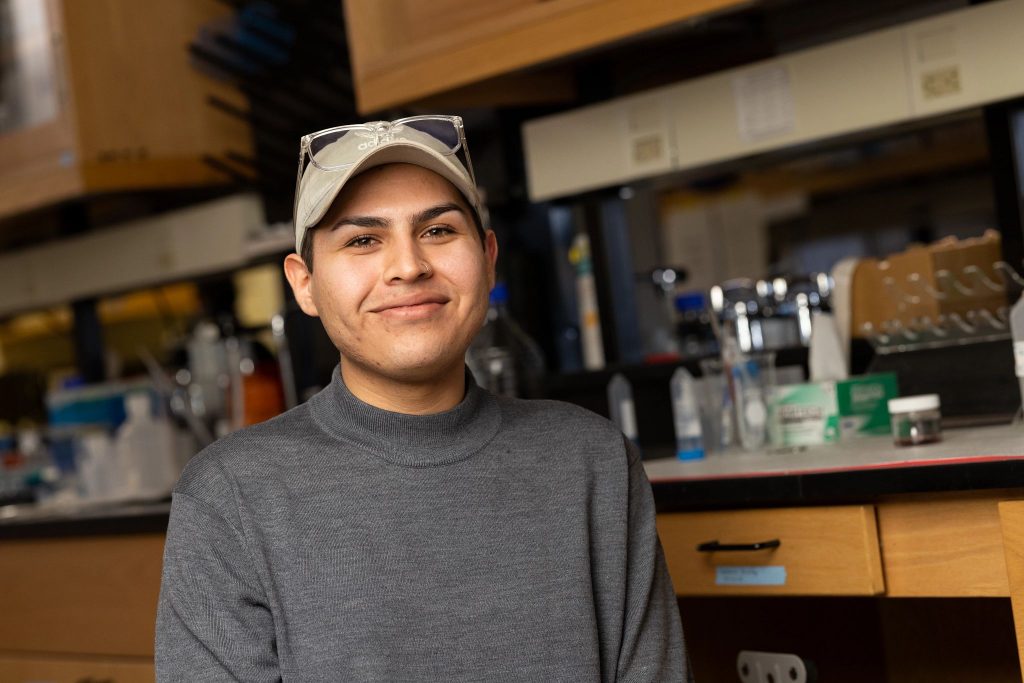
The study hit close to home. “I do identify as Hispanic. Hispanics and a lot of other minority groups are more susceptible to type 2 diabetes. Dr. Jarvis’ project is geared towards Hispanics and understanding genetic makeup and how that could affect their predisposition to type 2 diabetes,” Huerta says. “I’ve seen how in my family, a lot of them have type 2 diabetes and are struggling with medications or insulin pumps, which affects their day-to-day life. I am excited to help find different intervention strategies that could keep someone from developing diabetes in the future.”
Mentorship was an essential part of Huerta’s success in the lab. Dr. Jarvis made sure he was familiar with lab equipment and gave him tips on working with human research subjects. She also helped him feel appreciated. “That’s super cool and exciting for me to have that kind of relationship, especially with the professor,” he says. Huerta also learned from his mentor, graduate student Leah Claus. “She showed me the ropes in the lab and guided me on to how to succeed,” Huerta says. “She taught me a lot of lab skills as well as letting me know about different aspects of the research.”
Huerta funded his initial research through a Louis Stokes Alliance for Minority Participation (LSAMP) grant and presented his research at LSAMP mini-symposiums. He credits LSAMP for helping him gain his footing as he navigated university life. “LSAMP set me up with a mentor and tutoring. That has really helped me get through college.”
Exploring the medical field
Always looking for opportunities to increase his medical knowledge, Huerta is currently working on an NAU internship with the Coconino County Medical Examiner’s Office. He will gain a general overview of what happens in their office, completing office work and observing autopsies. He is also working on a pharmacy technician program through his job at Walmart, learning about health insurance, different medications, and how to work with pharmacists.
Huerta also joined the Medical Directive club, a decision that gave him the opportunity to connect with a physician assistant mentor. “I got in touch with someone currently in NAU’s Physician Assistant program at the Phoenix Bioscience Core,” Huerta says. “She helped me understand what it was like applying and what to expect for the first-year studies and the second-year clinical. It made me fall in love with NAU’s ability to have those kinds of resources available to us.”
Before starting PA school, Huerta will take a gap year to finish the pharmacy technician program and spend time at home with family. Unsurprisingly, when asked what he was most proud of accomplishing at NAU, Huerta returned once more to family: “Making my mom proud about how far I’ve come at the university with everything I’ve done.”

